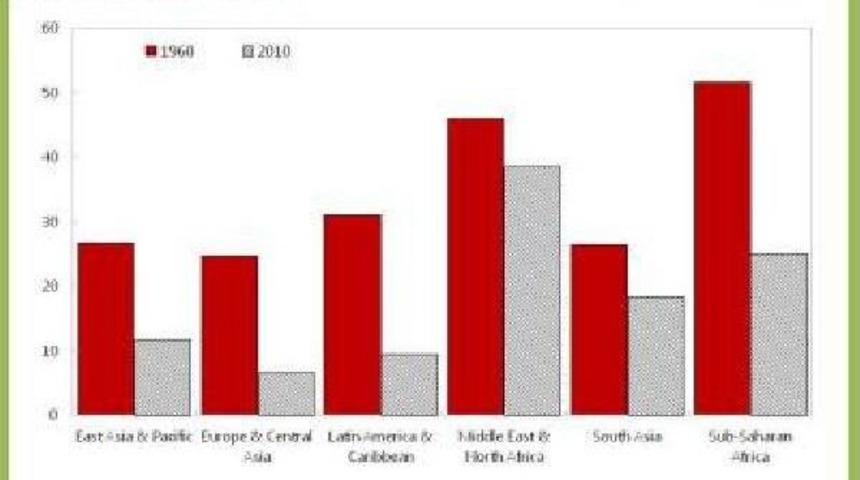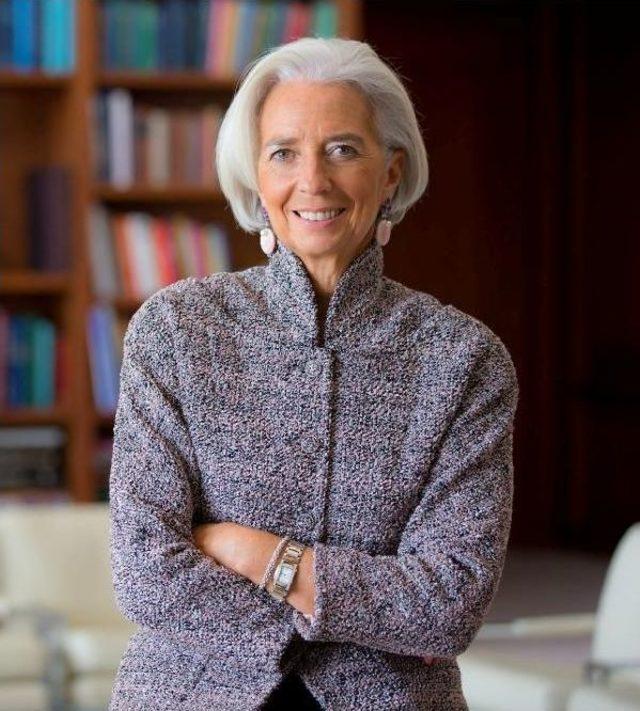
- Ninety percent of countries have some kind of legal restriction on women's economic activity, even when the law isn't directly related to the workforce, affecting their employment and the economy, said Christine Lagarde, Managing Director of the International Monetary (IMF) Fund.
"Leveling the legal playing field for women holds real promise for the world, in both human and economic terms. Unfortunately, that promise remains largely ignored and its potential untapped" she said in the presesentation of an IMF report, with "Equal Laws for Equal Working Opportunity for Women" headline.
"In too many countries, too many legal restrictions conspire against women to be economically active—to work. What can be done to remove these barriers? A new study done by IMF economists seeks to answer that question" she added.
Despite some progress over the past few years, gender-based legal restrictions remained significant with almost 90 percent of countries had at least one important restriction in the books, and some had many, she said.
"These range from the requirement for women to seek their husband’s permission to work, to laws that restrict women’s participation in specific professions. Others constrain the ability of women to own property, or to inherit, or to obtain a loan."
"Our new study finds a strong relationship between legal restrictions and female labor market participation" she went on, pointing out that in 50 percent of the countries which were studied for the report, equity had been reflected in law. "When this happened, female labor participation rates increased by at least 5 percentage points over the following five years."
"Think about the tremendous potential here. Countries ranging from Kenya and Namibia to Peru have made legal changes and reaped the benefits. Sometime all it takes is just a couple of laws to change.
Peru is a great example" she said.
"There are big differences across the globe in female labor force participation. Women make up 40 percent of the global labor force. Yet only 21 percent of women in the Middle East and North Africa work outside the home versus 63 percent in East Asia, the Pacific and sub-Saharan Africa."
Related to the "very different" circumstances, there was no single solution to the gender gap problems, she said, refering to the need of a multi-pronged approach, one that was tailored to the country’s conditions, social and religious norms.
Lagarde said, in any event, to bring more women into the workforce and increase growth, thene was a need to level the playing field to eliminate legal discrimination against women. "Removing legal restrictions can yield fast results in boosting female labor supply" she said.
"Increasing women’s economic participation can, in turn, lead to higher growth. By some estimates, raising female labor force participation to the respective levels of men would increase GDP by 5 percent in the United States, 9 percent in Japan, 12 percent in the United Arab Emirates and 34 percent in Egypt. It makes economic sense to increase women’s labor participation."
"Our study also finds that the introduction of more equity in property rights or in the pursuit of a job or a profession does not have to come at the expense of male employment; this can be a win-win outcome" she added.
The IMF looked at the gender discrimination issues mainly through the economic prism of greater gender equality, she said. "We are contributing to this agenda through analytical work and regular health checks, known as Article IV consultations, with each of our member countries."
"What we find is that issues related to women’s participation in the labor force have important economic consequences, particularly in countries where there is a need to find new sources of growth, for instance where populations are aging rapidly" she added.
She added that, there was still a lot of work to be done, but having more equal laws and regulations was a good place to start. "By helping women reach their full economic potential, we can also help boost growth, prosperity and stability for the whole world" she added.
(GRAPH)

Anadolu Ajansı ve İHA tarafından yayınlanan yurt haberleri Mynet.com editörlerinin hiçbir müdahalesi olmadan, sözkonusu ajansların yayınladığı şekliyle mynet sayfalarında yer almaktadır. Yazım hatası, hatalı bilgi ve örtülü reklam yer alan haberlerin hukuki muhatabı, haberi servis eden ajanslardır. Haberle ilgili şikayetleriniz için bize ulaşabilirsiniz